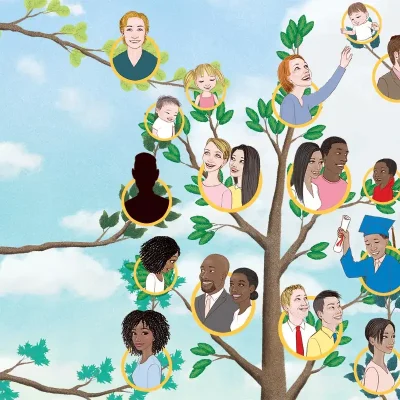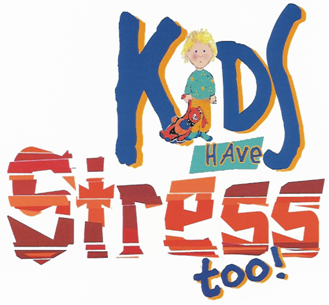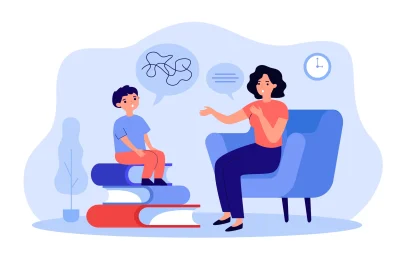This page is to provide information for parents/carers and children. I will provide links to other sites which give advice etc.
Counselling Support for Parents and Caregivers
Family is at the heart of every person’s life journey. It’s where we first learn about the world. Whether it’s a family of biological relatives, adoptive parents, or a close-knit community, these early relationships shape who we are and how we interact with the world.
From birth, our family influences nearly every aspect of our development. This includes the language we speak, the routines we follow, and the values we adopt. Within these family bonds, we first learn how to love, trust, and connect with others. These experiences lay the foundation for all future relationships.
Yet, families can be complex. Each family dynamic—whether it’s a two-parent household, a single-parent family, or adult children caring for aging parents—has its unique challenges. These challenges can lead to tension or misunderstandings, leaving family members feeling unheard, disconnected, or overwhelmed.
How Counselling Can Help
Counselling can make a real difference. It offers a safe, supportive space where every family member can be heard, without judgment. Through counselling, families can explore their behaviour patterns, improve communication, and rebuild relationships. It’s about better understanding each other, resolving conflicts, and creating healthier connections.
We have extensive experience supporting various family structures. We understand that every family is unique, which is why we offer a compassionate, empathetic approach. Whether you’re dealing with parenting challenges, adjusting to a new family member, or navigating the complexities of blended families, we’re here to help.
Our non-judgmental, caring support helps families break through barriers, rediscover harmony, and build deeper connections. Our goal is to empower each family member to feel understood and respected. We aim to foster an environment where healthy communication and mutual respect can flourish.






Supporting Parents/Carers and Young People Through Life’s Challenges
Parenting can be incredibly rewarding, but it is also one of the most challenging roles we take on. At times, it can feel overwhelming, and you might need extra support. It’s important to remember that every parent goes through difficult phases. It’s completely normal to feel uncertain about how to navigate them.
Life brings many transitions and adjustments that can add unexpected stress. We all experience moments when things feel hard to cope with—whether it’s changes in routine, family dynamics, or the pressures of school and work.
Children and Teenagers
For young people, challenges can feel even more intense. Many children and teens face rising levels of stress and anxiety, especially during exam periods. However, the root causes of their feelings may not always be clear. They might be struggling with social pressures, personal issues, or changes at home that you might not even be aware of.
If you’ve noticed shifts in your child’s behaviour, such as withdrawing, acting out, or seeming more anxious than usual, it could be a sign they are dealing with emotional challenges. Their behaviour might be a way of communicating that they are struggling with something, even if they can’t fully articulate it. This is where support can make a significant difference.
If you or your child are facing difficult emotions, I offer a compassionate, non-judgmental space to explore what’s going on. Together, we can identify underlying issues and develop strategies to manage emotions, reduce anxiety, and improve coping skills. My approach is tailored to meet your family’s needs, whether that’s helping you better understand your child’s feelings, teaching coping techniques, or improving communication within your family.
What We Offer
We offer flexible support options, including face-to-face sessions, phone, and online therapy, to make it easier for you to access help in a way that fits your family’s schedule. We work with each young person individually and use creativity to engage those who may benefit from it.
You don’t have to face these challenges alone. Reach out for more details, and let’s work together to find a path forward.
How Can Counselling Help My Child?
What Challenges Might Children Face?
Many young people face significant challenges with their emotions and mental well-being. They may struggle with friendships, family issues, school pressures, or personal feelings of anxiety, depression, anger, or fear. The pressure to perform well in school, the stress surrounding exams, and the expectations they place on themselves can often feel overwhelming. Additionally, major life events, such as the loss of a loved one or a family breakup, can leave them feeling lost or uncertain.
At times like these, children and teenagers often find it hard to talk to family members or friends, even when they desperately need someone to listen. They might feel misunderstood, embarrassed, or afraid of being judged. This is where counselling can offer essential support.
What Does a Counsellor Provide?
A counsellor offers a safe, neutral space where your child can express their feelings without fear of judgment. Talking to a professional can help them work through emotions and challenges in a confidential setting—unless their safety is at risk. In such cases, the counsellor will take necessary steps to ensure they are protected.
Counselling can be particularly helpful when your child is feeling overwhelmed by schoolwork or exam stress. The pressure to succeed academically can cause significant anxiety. Young people often don’t know how to manage these feelings. We can help them develop coping strategies for stress, time management, and self-care, empowering them to face academic challenges with more confidence and calm.
Through therapy, children and teens can gain a better understanding of themselves, build resilience, and develop healthy ways to approach both personal and academic struggles. This not only boosts their confidence in the present but also sets them on a path to a brighter, more balanced future.
If you think your child could benefit from counselling, I’m here to help. Please contact me to arrange an appointment with one of our qualified counsellors, experienced in supporting children and young people with academic pressures and exam-related stress.




Children’s Mental Health
With 75% of mental health problems in adult life (excluding dementia) starting by the age of 18.1 – it’s clear that the sooner you can spot the signs in childhood, the better.
We’ll help you understand the signs and behaviours that could point to a child or young person needing support to maintain their mental wellbeing through their teenage years and into adulthood.
If you have urgent concerns about your child’s mental health and wellbeing, please speak to your GP or call the Young Minds parents helpline on 0808 802 5544 for more information please click here
Crisis help
I am unable to offer crisis and urgent support out of my working hours.
If you feel that you or someone’s life is at risk.
Or if someone has been seriously injured, feeling suicidal or taken an overdose and you do not feel you can keep yourself or someone else safe. Call 111
Here is some further information and support:
Is your life or someone else’s life in danger?
If you have seriously harmed yourself – for example, by taking a drug overdose – or you feel that you may be about to harm yourself, call 999 for an ambulance or go straight to A&E.
Or ask someone else to call 999 or take you to A&E.
Making a safety plan
If you struggle with suicidal thoughts or are supporting someone else, it may help to make a safety plan to use if you need it:
- the Staying Safe website provides information on how to make a safety plan, including video tutorials and online templates to guide you through the process
- you can also get information on planning for a mental health crisis from mental health charity Mind
Children and adolescent support
Children and adolescents can struggle with their emotions and with their life styles if you are concerned or a child would like someone to be able to talk to here is some information.
Childline – for under 19s to be able to talk and get support
Tel: 0800 1111
www.childline.org.uk
Kooth – Children’s online mental wellbeing community
www.kooth.com
NSPCC – discuss or report a concern about the safety or welfare of a child.
Tel: 0808 800 5000
www.nspcc.org.uk
The Mix – free information and support for under 25s in the UK
Tel: 0808 808 4994
https://www.themix.org.uk
SOS Silence of Suicide – for everyone
Call 0808 115 1505 – 8pm to midnight Monday to Friday, 4pm to midnight Saturday and Sunday
Email contact@sossilenceofsuicide.org
